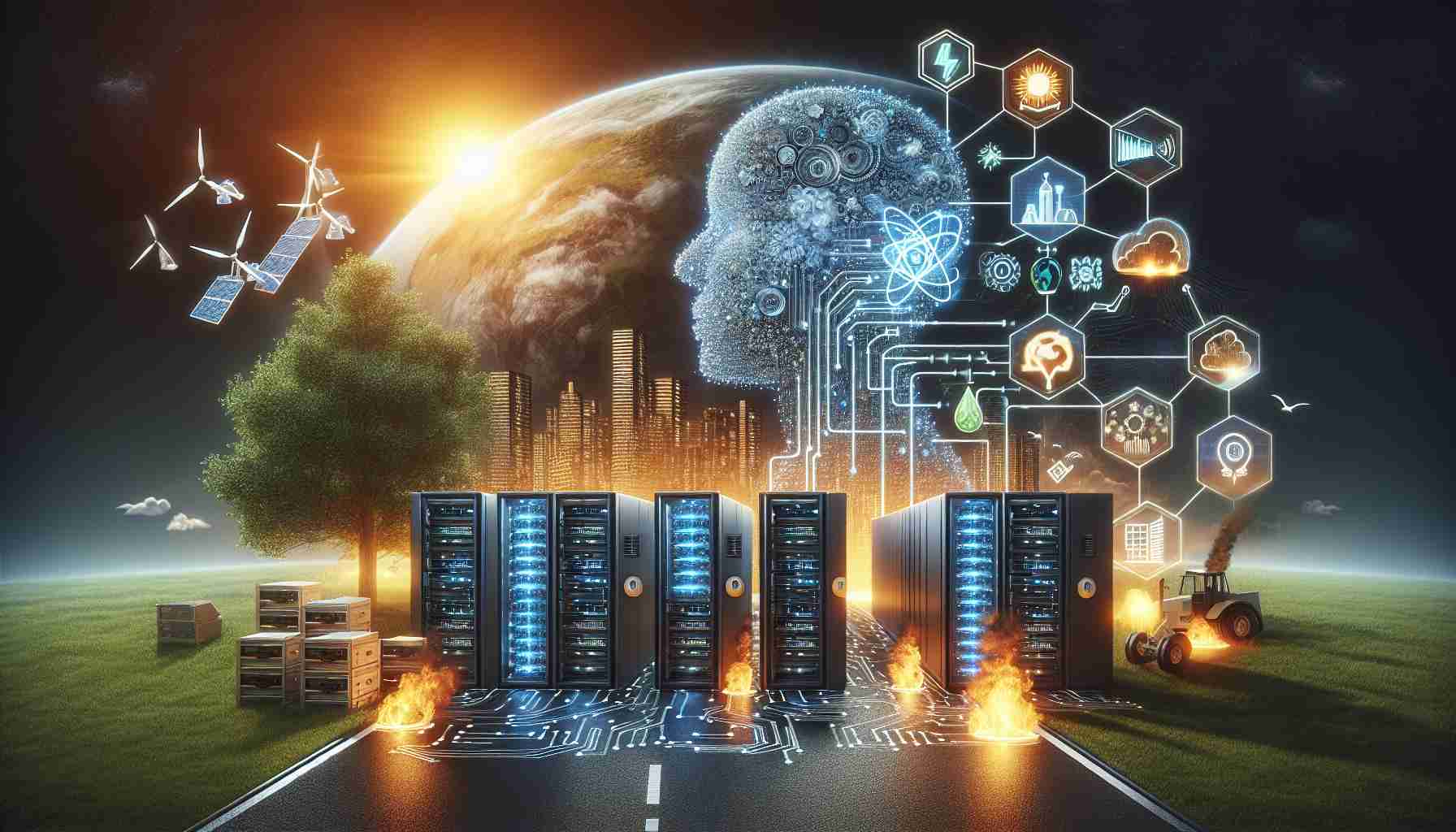Artificial intelligence (AI) is renowned for its potential to reshape industries and revolutionize our daily lives. However, beneath its promising facade lies a hidden concern: the significant impact it poses on the environment.
Experts predict that the demand for AI will require a staggering 4.2 to 6.6 billion cubic meters of water by 2027. To put this into perspective, it is roughly half the amount consumed annually by the entire United Kingdom. The growing popularity of generative AI exacerbates this issue by further intensifying the demand for energy and water resources.
The heart of this problem lies in the large language models that power AI technology. These models rely on immense amounts of computing power, driving the need for data centers and server farms that consume substantial quantities of water, a significant portion of which is used for cooling equipment.
According to reports, in 2022, Microsoft’s water consumption increased by 34% due to the growing use of data centers, while Google saw a 22% increase and Meta experienced a 3% rise. These figures demonstrate the alarming trend in the escalating water consumption linked to AI development.
Furthermore, data centers, cryptocurrencies, and AI collectively accounted for almost 2% of global electricity demand in 2022, as highlighted by the International Energy Agency. This percentage is projected to double by 2026, potentially reaching the electricity consumption levels of an entire country like Japan.
While AI offers unprecedented opportunities, experts at the World Economic Forum’s annual meeting in Davos, such as Sam Altman, the creator of ChatGPT, have raised concerns. Altman emphasized the urgent need for an energy breakthrough to power future AI advancements sustainably. He underlined the importance of relying on climate-friendly energy sources like nuclear fusion or cost-effective solar power.
Addressing the environmental impact of AI represents a crucial aspect of integrating this technology into our society responsibly. It compels us to seek innovative solutions that not only enable remarkable advancements but also prioritize the preservation of our natural resources and the well-being of our planet.
Artificial Intelligence (AI): Refers to the development of computer systems that can perform tasks that normally require human intelligence, such as visual perception, speech recognition, and decision-making.
Generative AI: Refers to AI systems that can generate new content, such as images, text, or videos, based on patterns and data.
Data Centers: Facilities that house computer systems and equipment used to store, process, and manage large amounts of data.
Server Farms: Large collections of servers in data centers that work together to provide computing resources for various purposes.
International Energy Agency: An autonomous agency that works to promote energy security, economic growth, and environmental sustainability worldwide.
Nuclear Fusion: A potential future energy source that involves combining light atomic nuclei to create heavier nuclei, releasing large amounts of energy in the process.
Solar Power: Energy obtained from the conversion of sunlight into electricity, typically using solar panels.
Link: World Economic Forum – An international organization that engages political, business, cultural, and other leaders to shape global, regional, and industry agendas.
The source of the article is from the blog scimag.news

